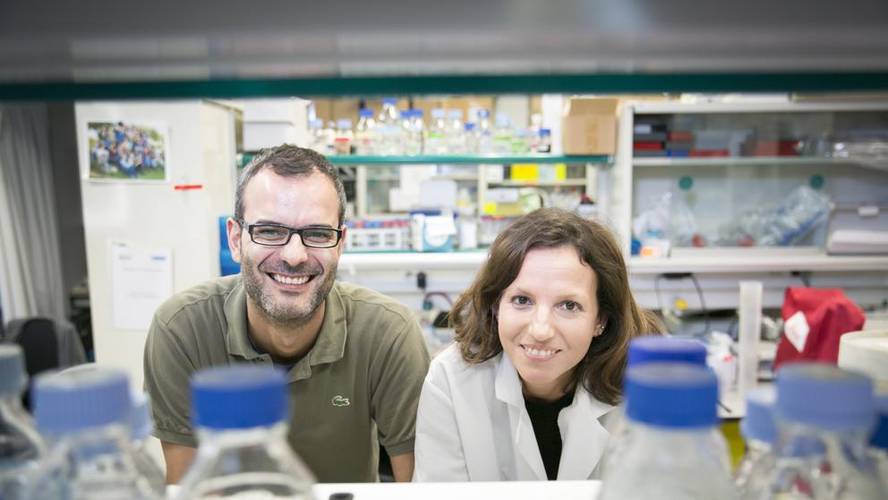Metastases associated with fat metabolism
Text created by automatic translator Elia and has not been subsequently revised by translators. Elia Elhuyar

Researcher Salvador Aznar Benitah and researcher Gloria Pascual, in the laboratory of the Institute of Biomedical Research of Barcelona. Ed. M. Minocri/IRB Barcelona
The study, carried out at the Institute of Biomedical Research in Barcelona, has revealed that cells with metastatic capacity express much more than in others. The protein controlled by this gene is a fatty acid receptor, demonstrating the direct relationship between fats and metastases.
On the other hand, it has been shown that the relationship of the protein with metastasis is also clear in the experiments carried out in the mouse: the addition of a CD36 gene to the tumor makes it malignant and produces metastases, while if metastasis is inhibited practically disappears.
Therefore, researchers are testing a new treatment pathway for malignant cancers based on blocking the CD36 gene. The tests have started with the British company MRC Technology and hope that in 5-10 years antibodies blocking the CD36 gene will be ready.
The relationship between dietary fat and metastasis is also being investigated. In fact, it was already known that fat consumption is related to the development of certain cancers, such as the colon. To investigate this relationship, tumor cells were injected into mice, and some of them were given 15% more saturated fatty acids than others with food. 30% of mice fed normal diet had metastases, while 80% of consumers with more saturated fatty acids had metastases, with an increase in tumors.
Researchers have warned that the worst of fatty acids would be palmitic, which is the one that carries many processed foods (on labels it appears as palm oil).
The study has been published in the prestigious journal Nature. The article highlights that although they have investigated oral cancer, it will also occur in other cancers in which CD36 gene activity is increased, such as melanoma, lung, male, liver, and a type of breast cancer.
Video explaining the study carried out by the Institute of Research and Biomedicine of Barcelona, in English.
Published in the newspaper Berria.





